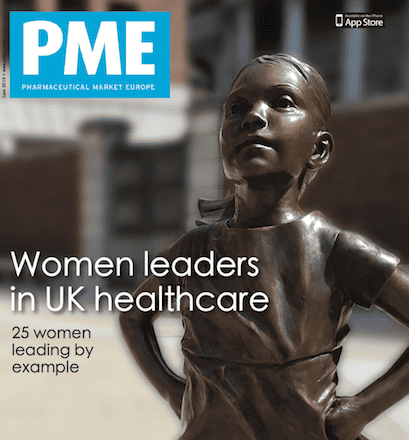
Welcome to Pharmaceutical Market Europe’s special feature on 25 Women Leaders in UK Healthcare (Part 1)
This is our second annual list and this time we’ve followed the same formula as last year, albeit focusing on 25 outstanding individuals rather than 30 as we did last year, helping us to examine what makes these women leaders exceptional a little more closely.
There is no doubt that the last few years have seen some encouraging progress towards promoting women in society and the workplace, including it becoming increasingly commonplace for women to occupy the most senior positions in life sciences. However, there is little room for complacency as there remain many systemic and often invisible barriers.
One clear example of ‘unconscious biases’ at work is in health tech funding, which Ada’s Claire Novorol (number 7 on our list) says must be addressed if women are ever to have a level playing field. Let’s not overlook, also, the matter of ethnic diversity, where pharma and biotech most definitely still have a problem.
Meanwhile, the rolling back of access to abortion in some states in America – and its continuing illegal status in Northern Ireland – illustrates that rights need to be continually defended and campaigned for. Included in our list here is Sarah Ewart, the woman who has shown enormous courage in challenging Northern Ireland’s absolute ban on abortion in the courts.
This year, we’ve picked out some key themes which women say are particularly relevant to helping overcome obstacles. The first of these is mentorship and women ‘sending the lift down’ for other women. To back up this concept, we asked several of the women included in last year’s list to nominate other women who they thought were particularly deserving of praise.
My thanks to everyone who contributed these suggestions, as well as those who volunteered the much-deserved accolades for these 25 women. The second theme, continued from last year, is a focus on women leaders who are helping to break down barriers between the different disciplines in healthcare – across the NHS, industry and academia, and digital health.
Special thanks go once again to the Healthcare Businesswomen’s Association (HBA) London chapter, who last year provided the initial inspiration for this feature, and who continue to further the cause of gender parity in our sector with great energy, and a generous and inclusive spirit.
Finally, the logic behind our list remains unchanged: this is not a ‘power list’; indeed there is no hierarchy (the numbering is there simply to make it easier to navigate), and it doesn’t strive to be definitive. Rather, these women have been identified for their leadership in their chosen field, often breaking out of the mould and taking a new approach to an old problem, even if they’re not in an ‘entrepreneurial’ role. We also wanted to illustrate the diversity of talent working across healthcare and emphasise how seeing UK healthcare as one ecosystem, and breaking down organisation barriers, is the best way forward for patients and society.
1. MELANIE LEE
Research leader
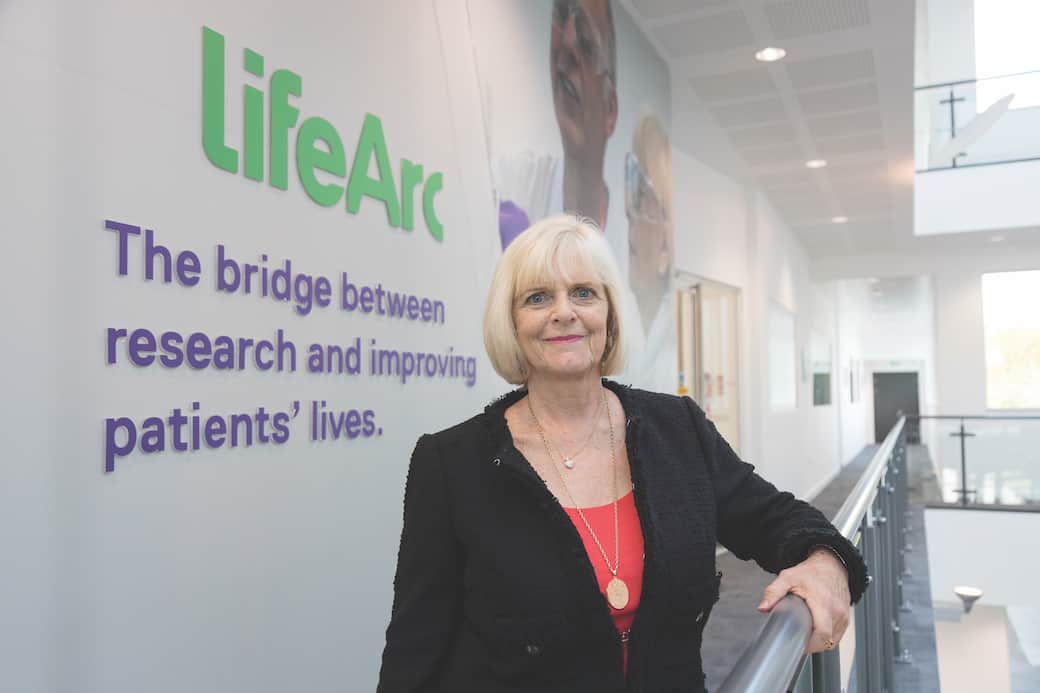
Melanie Lee is one of the most respected leaders in UK life sciences, having excelled in roles across the spectrum, from her early work in academic genetic research through to drug development in pharma, and into leadership of several successful UK biotech firms.
Today Melanie is chief executive of the medical research charity LifeArc, which she joined late last year, and which is about to transformed by a $1.29bn royalty deal based on its role in developing immuno-oncology blockbuster Keytruda.
LifeArc already has a stake in a broad range of translational research, from investments in small-scale academic research to major drug development alliances with pharma, but now plans a significant expansion of its mission.
She said each phase of her career has given her “new insights and unique challenges along the complex process of enhancing patient quality of life”, experience which she intends to put to good use at LifeArc.
Lee joined LifeArc from her previous role as chief scientific officer at specialist pharma company BTG, and said one key attraction was the chance to accelerate translational research and catalyse convergence across currently very distinct life sciences disciplines.
“The new wave of healthcare has to start to bring diagnostics, devices and therapeutics together. If we’re really aiming for disruptive change in health treatment and in pathways, we’ve got to start to integrate those three. I left the industry to be able to facilitate that, and that’s what LifeArc can do.”
Lee is now reviewing LifeArc’s portfolio of projects, but sees scope for in-house research on pain, plus networked ‘open innovation’ style collaborative research on underserved areas such as neurology, dementia and antimicrobials.
The coming Keytruda windfall will also allow the charity to set up a stand-alone venture capital division, with which it could seed funding and help promote research in key areas.
She says she is delighted to see more women making progress into senior roles in the sector. This is thanks in part to the demise of the Old Boys network which she said was “very inhibitory to women” – but added that greater ethnic diversity in the sector will take many more years to bring about.
In January Lee was awarded the BIA’s Lifetime Achievement Award, and in her acceptance speech she laid out some thoughts on leadership.
Among her biggest tips was to build a trusted professional network, which she says should span all age groups, thereby providing you with not only support, but also a natural talent pool and network when scouting for future leaders.
2. PROF DAME SUE HILL
Genomics Pioneer
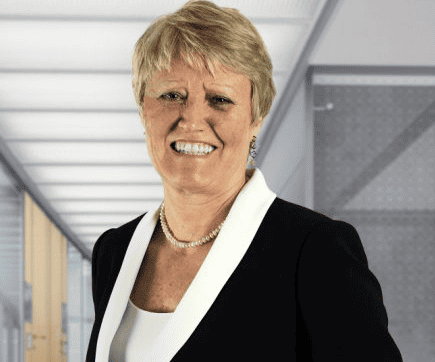
Chief scientific officer for England, Professor Dame Sue Hill is the leader of no fewer than 50,000 healthcare scientists who work in the NHS and associated bodies.
She is also senior responsible officer (SRO) for the NHS Genomics Programme and has played a crucial role in enabling the groundbreaking 100,000 Genomes Project by ensuring these healthcare scientists were engaged in the programme.
The 100,000 Genomes Project, led by Genomics England, reached its goal of sequencing 100,000 whole genomes from NHS patients late last year, making it a world leader in the field.
It has already produced some life-changing outcomes, giving one in four participants in the project with a rare disease a diagnosis for the first time, and providing potentially actionable findings in up to half of cancer patients.
Now Prof Hill and colleagues are taking the project into its next phase, steps which include the creation of 13 NHS Genomic Medicine Centres (GMCs), a state-of-the-art sequencing centre run by Illumina, and an automated analytics platform to return whole genome analyses to the NHS.
This means the UK has become the first nation in the world to apply whole genome sequencing at scale in direct healthcare, and is providing access to high quality de-identified clinical and genomic data for research.
The project has laid the foundations for an NHS Genomic Medicine Service to provide genomic testing to patients across the NHS from 2019.
Prof Hill is also an active advocate for more women in key STEM professions, including being patron of the WISE Fellowship scheme.
3. DR RUTH MAY
Nurse leader
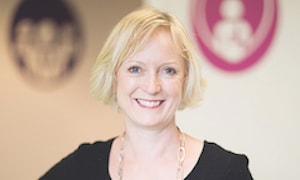
Ruth is the chief nursing officer for England and an executive/national director at NHS England and NHS Improvement.
She took on the role in early 2019, and is best known for the hugely successful ‘Stop the Pressure’ campaign, which nearly halved the number of pressure ulcers in one NHS region, improving care for patients, and delivering cost savings.
Nurses and midwives are the backbone of the health service, accounting for around 320,000 of its 1.5 million staff. However, hospitals have been struggling to retain and recruit sufficient numbers in recent years, with cuts to nursing bursaries identified among the major factors. NHS England is now aiming to recruit an extra 40,000 nurses over the next five years.
Key to May’s mission is ensuring that nurses, midwives and allied health professions (AHPs) can develop their careers and become leaders as she did, having served as chief executive of two NHS Trusts in her time. Also important is nurturing a happy working environment, including supporting improved mental health awareness in the workplace, and increased diversity across the NHS.
4. JAYNE SPINK
Rare disease patient champion
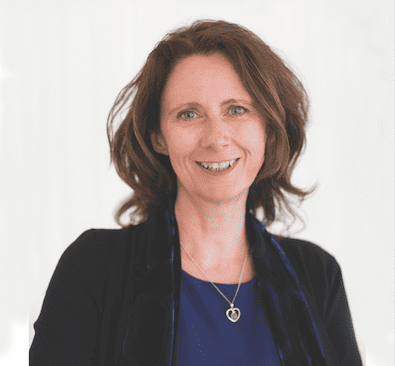
Medical research is expanding our understanding of genetics and genetically inherited rare diseases daily, but this progress is agonisingly slow if you are living with a rare condition for which there is no diagnosis, or no treatment, or where there is no access to new therapies on the NHS.
Of equal importance is support for patients and families, especially in reaching a correct diagnosis as early as possible.
Jayne has more than a decade’s experience in the third sector, after earning a BSc and PhD in genetics, with postdoctoral research experience.
This insight into genetics is matched with experience in the Department of Health and NICE – the perfect combination to help rare disease communities navigate their way through the system and gain greater access to diagnosis and treatment.
Jayne has led Genetic Alliance UK for two years, a UK charity and umbrella group comprised of 200 third-sector organisations that variously provide support, information and funding for research.
Genetic Alliance UK is home to Rare Diseases UK that campaigns on behalf of all those affected by rare conditions, and SWAN UK, that provides support to families affected by ‘syndromes without a name’ which are likely of genetic origin.
Driven by a desire to ensure that no-one is denied care, treatment or support because of the rarity of their condition, Jayne strives for a future in which terms like ‘diagnostic odyssey’ are consigned to the history books.
At the heart of her work is a drive to help create strong and cohesive healthcare structures and resources in the UK to deliver the most up-to-date and effective options for patients with rare, genetic and undiagnosed conditions.
She works to empower patients, families and their communities in the corridors of power and ensure that their voices are heard in the decision-making processes that will affect their lives.
Jayne’s team added: “Jayne is a woman of action and confidence, unafraid to speak on behalf of the community she represents to those in power; she is equally empowering to her team, valuing our insights and expertise, supporting us in our work and development, and fostering a great workplace atmosphere of shared responsibility for the work of the charity.”
5. PROF. CLARE GERADA
Doctor campaigner
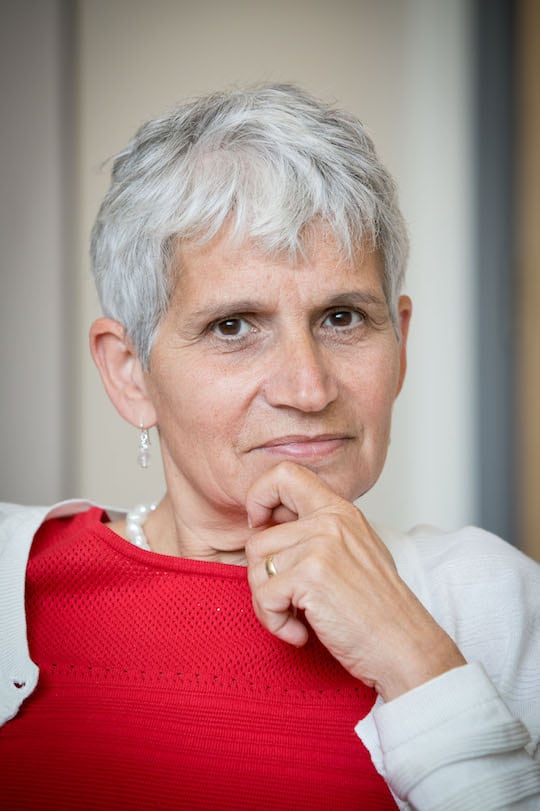
Having qualified as a GP more than 25 years ago, Professor Gerada has a special interest in treating and raising awareness around mental health and substance misuse.
In recent years she has also been outspoken about the pressures on doctors, highlighting the high levels of burnout, depression and suicide in the profession. She has launched an award-winning programme to help GPs return to work after mental health issues, and set up a support group for those left bereaved after a death or suicide of a doctor.
A self-described ‘general agitator’, Professor Gerada is nonetheless respected by her peers (having served as RCGP chair) and NHS and government leaders.
In February she was appointed co-chair of a new forum set up to oversee the delivery of the NHS Long Term Plan.
The NHS Assembly will bring together front-line clinical leaders, staff, patients, and voluntary and community sector leaders to advise NHS senior leaders on implementation of the improvements it outlined.
6. PROF. JOANNA HOLBROOK
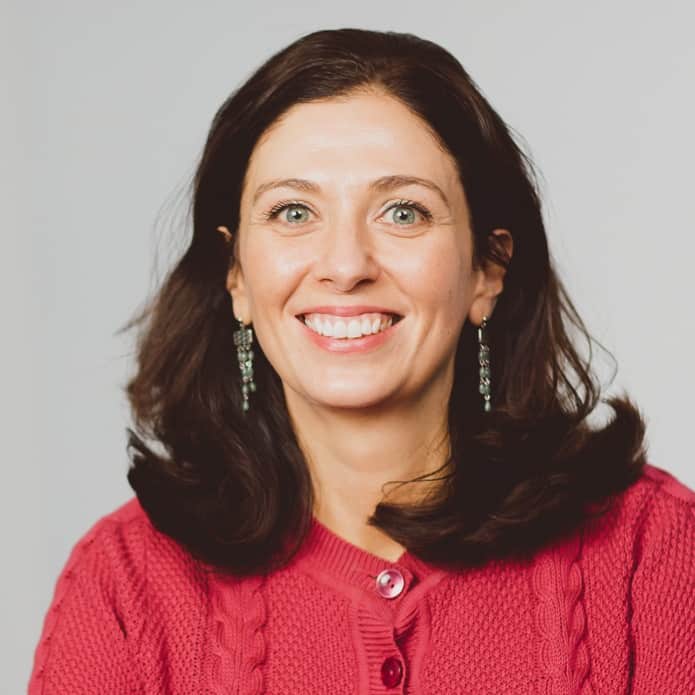
Professor Joanna Holbrook is director, translational biology at BenevolentAI, pioneers of AI-based drug discovery and development.
Joanna’s entire career has been dedicated to the study of genetics and she has moved seamlessly from the academic environment into a commercial one several times.
The firm has just signed a long-term collaboration with AZ for the discovery of new drugs for chronic kidney disease and idiopathic pulmonary fibrosis (IPF). The firms will work together to combine
AZ’s genomics, chemistry and clinical data with BenevolentAI’s target identification platform and biomedical knowledge graph – a network of contextualised scientific data (genes, proteins, diseases and compounds).
7. DR CLAIRE NOVOROL
Digital health pioneer

Dr Claire Novorol initially trained as a paediatrician in London before moving to Cambridge to work in genetics. She had a eureka moment when she succeeded in diagnosing a rare disease with the help of a database, and understood the potential of technology to support medical diagnosis and decision-making.
Interested in an entrepreneurship role, she was introduced to Daniel Nathrath and Dr Martin Hirsch in Berlin, and co-founded Ada Health, an AI-based service.Ada Health is a decision-support service for doctors, while Ada is for consumers.
Ada is an artificial intelligence (AI) app that helps patients navigate quickly and accurately to the right health service and, ultimately, the right diagnosis.
A chatbot poses questions to the users and helps them to understand their symptoms, suggesting what a condition might be and how to seek further help.
Novorol and her colleagues don’t see Ada as being a replacement for interaction with healthcare professionals, but do see it as a major leap forward compared to ‘Dr Google’, where using a standard search engine to research health worries can do more harm than good.
Because of the nature of AI, the service is continually improving, with the team’s doctors training the software to fine-tune its answers.
So far, Ada has performed eight million assessments around the globe, and every three seconds a new Ada assessment is completed.
Claire is also a champion of women leaders in the field. In a recent article for Forbes, she cited research by Rock Health which found that just one in seven health tech start-ups that received investment in 2018 had a female CEO – that’s just 13%.
She pointed to a number of factors, including unconscious biases in the overwhelmingly male leaders of VCs who select which entrepreneurs to back.
She continued that it’s not just gender diversity lacking in the field, but also ethnic diversity.
“We are going to need some fundamental changes if we are to ever properly redress the imbalance that exists in funding within healthtech,” she said.
8. DR SAM ROBERTS
Innovation translator
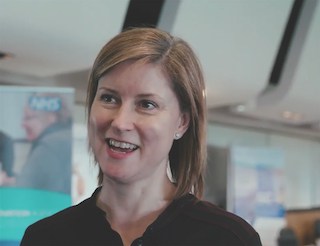
The UK life sciences sector has always lacked a single leader who could bring the NHS and industry together to work on promoting research and uptake of innovation to the benefit of business, patients and taxpayers alike.
In the last 12-18 months, Dr Sam Roberts has shown it’s possible to have such a leader.
Originally trained as a doctor, Sam practised medicine in her native Australia, South Africa and the UK before joining McKinsey and eventually specialising in healthcare. After McKinsey she moved into the NHS as a senior manager at a large teaching hospital in London (UCLH) and a director in an Academic Health Sciences Centre and Network (UCLPartners).
She was made NHS England’s director for innovation and life sciences in January 2018 – at a time when fears about the impact of Brexit on the sector were creating a new imperative for real collaboration between government and industry.
Within a year, Sam had led the development and implementation of a policy designed to attract more R&D investment from pharma and to protect the UK from the worst of Brexit and benefit patients by unlocking the NHS’ potential.
Working with the National Institute for Health Research (NIHR), the HRA and NHS Improvement, she led the introduction of new measures to eliminate variation and delays in setting up commercial contract research.
IQVIA’s Angela McFarlane was on PME’s Women Leaders list last year, and when asked to nominate some worthy women for this year, she didn’t hesitate to name Sam.
“Dr Roberts is really driving a new spirit of collaboration between the industry and the NHS,” said Angela.“It’s rare to see a significant policy improvement in such a short time and this reflects the leadership in bringing together factions in clinical research and getting a result that makes a difference at pace and scale.”
Dr Roberts is now switching roles to become chief executive of the Accelerated Access Collaborative (AAC). This is a dedicated fund aimed at helping innovation that has been given the seal of approval by NICE and NHS England to fast-track uptake into the NHS. Pharma has been sceptical about the AAC’s value until now, but Dr Roberts’ leadership will give it a far better chance of making a real impact.
Speaking about innovation, Dr Roberts said: “This is one of the best times to be involved in iinnovation, because the need is so clear. We known funding is tight for healthcare, we know the needs of the population are changing, and that people are running their lives in completely new ways beyond healthcare. So it feels like a perfect storm for the transformative power of innovation to be unleashed.”
Technology has completely changed the power dynamic between individuals, organisations and power structures. I am really excited to see how, over the coming decades, people will become much more empowered about the kind of health information they want and the decisions they feel they can participate in.”
9. RUTH MARCH
Precision medicine leader
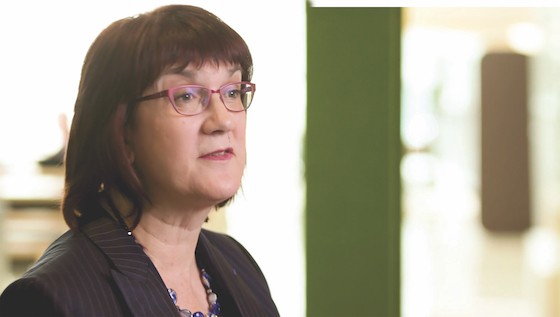
Precision medicine and the use of companion diagnostics now plays a fully integrated role in many successful new cancer therapies.
But how do you deliver these companion diagnostics to healthcare systems and patients so that they reach the market with the medicines and keep innovating to maximise targeted therapy and patient benefits?
Ruth March knows the answers to these questions, because over the last few years she has emerged as one of the industry’s leaders in the field and has played a key role in helping AstraZeneca’s renaissance in oncology.
Commenting on her colleague, Susan Galbraith, head of oncology at AstraZeneca’s IMED Biotech unit (and herself one of our listed leaders last year), said: “Ruth has helped transform AstraZeneca into an industry leader in precision medicine, with four launched drugs linked to companion diagnostics, 440 scientific papers and more than 90% of AstraZeneca’s clinical pipeline following a precision medicine approach.”
Key to her role is partnerships with diagnostic companies, and through these Ruth has delivered 28 approved diagnostic tests in three major markets. These include 11 industry firsts, including the world’s first use of circulating tumour DNA to guide therapy, which decreases clinical risks associated with solid tumour biopsy, and increasing patient access to targeted therapies.
Building on expertise in population genomics, Ruth initiated and provides science input to AstraZeneca’s genomics initiative, which aims to analyse 2 million human genomes, identifying rare variants that underlie common disease and applying machine learning, artificial intelligence and collapsing analysis to pinpoint genes that contribute to disease and drug response.
Ruth has more than 80 publications to her name, and led the first genome-wide FDA submission of a hepatic adverse event and the first tumour-based analysis of an AstraZeneca clinical trial. She serves on seven boards and advisory bodies and provides insight to global health authorities and government initiatives.
10. THEODORA HAROLD
Biotech leader
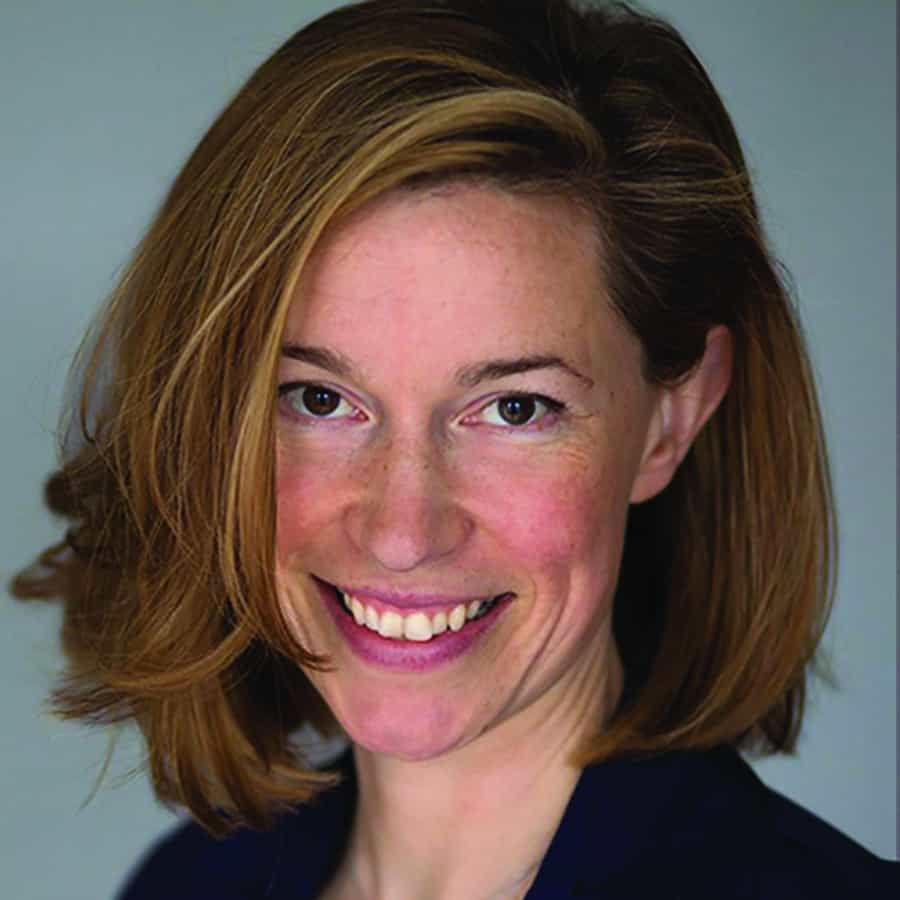
While big pharma is making some significant strides in having women as their top leaders (most notably GSK’s CEO Emma Walmsley), the biotech sector, particularly in Europe, is not making the same progress.
It’s long been recognised that one of the biggest factors holding back UK and European biotech success has been a paucity of leaders, and that’s why efforts are being made to help promote women in these roles.
That’s why Theodora Harold taking on the top job at emerging UK biotech Crescendo Biologics is worth noting, as she represents a new generation of leaders in the sector.
Somewhat atypically, Theodora doesn’t come from a life sciences background, but qualified as a chartered accountant with PricewaterhouseCoopers and read Classics at Trinity College, Cambridge before moving into biotech management.
Before she joined Crescendo, she held industry and corporate finance roles with private and listed SMEs, including PsiOxus Therapeutics, MISSION Therapeutics, OrthoMimetics and Cytomyx. She played a key role in Crescendo’s recent $70m fundraising project, has overseen finances and operations and, more recently, business development.
11. ALICE CHOI
Northern powerwoman
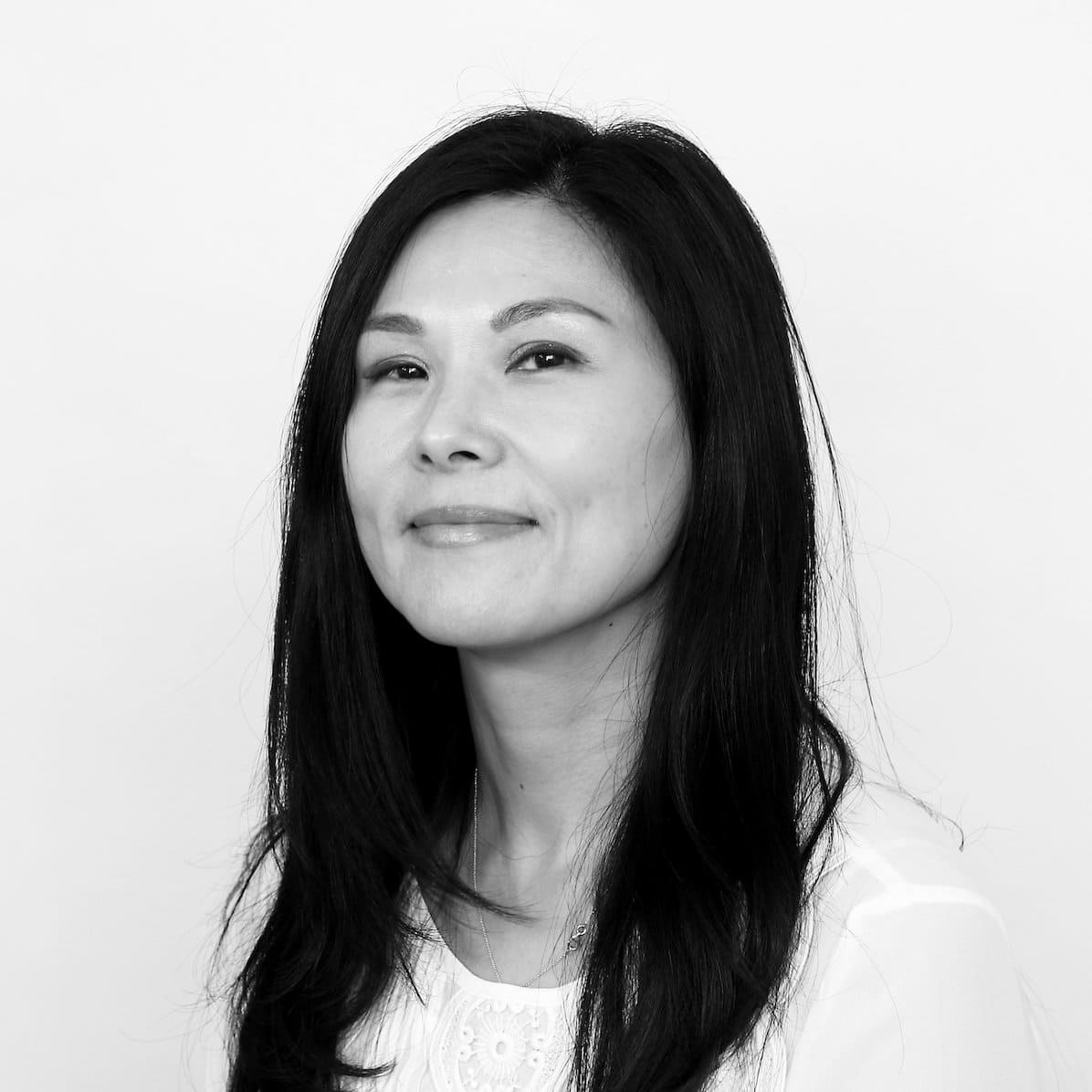
They say if you want to get an important job done, give it to a busy person. And that person is more often than not a woman, juggling many responsibilities and roles and keeping the show on the road.
McCann Health’s Alice Choi exemplifies this spirit, able to take on a wide range of roles while keeping her sense of fun and down-to-earth nature remarkably intact.
Alice is chief operating officer, McCann Health Medical Communications, and executive director of McCann Health’s Global Scientific Council.
She is also a Women of Influence Mentor for Cancer Research UK and a public governor for The Christie NHS Foundation Trust in Manchester and recently took on the voluntary role of chairing the Healthcare Communications Association (HCA).
Alice says she’s looking forward to helping lead the HCA as it moves ahead with its evolution, further consolidating its position as a leading UK healthcare communications organisation championing the specialty. Alice will work closely with HCA’s chief executive Mike Dixon to deliver the HCA’s long-term strategy.
Another of Alice’s voluntary roles has been as a long-term contributor to the International Society for Medical Publication Professionals (ISMPP). Al Weigel, president and CEO of ISMPP says Alice has been an ‘instrumental member’ of ISMPP for many years.
He says her most significant contribution was leading its board of trustees through a two-year long exercise in developing a long range strategic plan for the Society.
“It became clear Alice had the skill-set to lead others on the Board, but also had the vision and creativity to look beyond our most recent successes and push us toward what we must become to remain viable and relevant to our membership.”
A proud native of England’s north west, another significant voluntary role for Alice is as a ‘role model’ for Northern Power Women. The group engages women and men in the north of England across sectors and industries to act as ‘agents of change’ and advocates for gender balance.
“I am a big believer in mentorship. I think it comes in lots of different forms,” said Alice. “I think diversity is very important as well, and also having cross-sector mentorship, because you get exposed to a lot more diversity of thinking and experiences.”
Keeping a balanced view between the ‘big picture’ thinking, professional pressures and her personal life are important to her.
“I am really proud of what I’ve achieve professionally, but I am equally proud of being the mother of three daughters. So it’s all about that juggling,” she added.
In her ‘day job’ Alice has a key new role as executive director of McCann Health Global Scientific Council.
The Council’s goal is to make a tangible difference in key areas of need in medical science, bringing added value to its clients, and providing a platform for scientists on the big issues in global science and healthcare.
It is focusing on four areas of acute medical and societal need where it believes healthcare comms can play a big role: antimicrobial resistance, mental health, obesity and precision medicine.
12. JULIE ADRIAN
Health comms leader
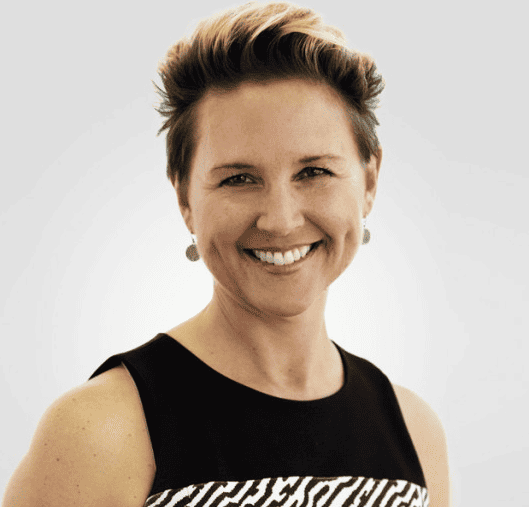
Julie Adrian is one of the best known and influential leaders in the world of European healthcare comms, and as president of Syneos Health Communications Europe, leads with creativity, warmth and wit.
Julie has more than 25 years’ experience in the development and execution of healthcare marketing communications. As well as overseeing the European communications group for Syneos Health, she also provides strategic counsel for integrated communications for pharma, biotech and device clients.
Also a great contributor to the HBA at both the EU and UK level, Julie supports its mission through its events, including the annual EU Summit.
She also advises teams and individuals, and hosts regular HBA events at the Syneos offices in London.
Her HBA colleagues commented: “Julie’s enthusiasm and tireless support seem to have no end!”
Julie chaired a recent HBA meeting, where she and other speakers explored how the industry needs to keep on adapting. She said this involves looking to tech companies and the consumer sector for inspiration and boldness, to patients for new insights in how to meet their true needs, and to employees to promote equality and diversity – and a sense of fun – in the workplace.
Looking to the big trends of future healthcare, Julie said pharma can learn a lot from companies outside the sector. “Start to ask: what would Amazon or Google do? Show some of their failures and successes. When you look at those companies, our little leaps of faith in creativity start to look really simple.”
She also says that hiring people with their own distinct world views, and people from outside the biopharma world, can help make strategic thinking more creative and original.
“Hire those people, so you have them in your organisation. Or if you can’t do that, be clever and charming so they want to hang out with you.”




